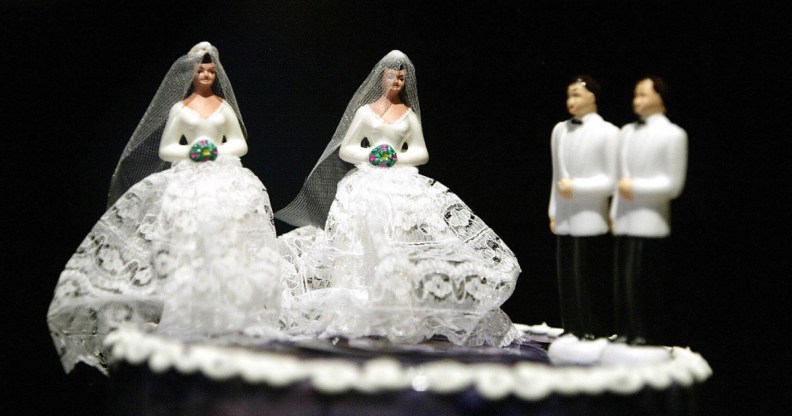Protesters vow to keep demonstrating in Tennessee until anti-LGBT discrimination goes away

Demonstrators in Tennessee have vowed to keep coming out into the streets until anti-LGBT legislation, including the state’s own proposed ‘bathroom bill’, is voted down.
Two bills to ban same-sex marriage and to restrict trans bathroom use were introduced in Tennessee earlier this month.
This is not the first time such bills have been introduced in the state.

The Natural Marriage Defense Act seeks to define marriage as specifically between one man and one woman, therefore ignoring a 2015 Supreme Court ruling legalising it in all 50 states.
Despite that the bill would no doubt be found unconstitutional in a court ruling, legislators have reintroduced it in the state legislature.
A second bill, which does not yet have a title, has been introduced to require students to only use the bathroom or locker room corresponding to the sex stated on their birth certificate.
Today the NFL warned that a similar bill proposed in Texas could see the state lose future chances to host the Super Bowl.
A similar bill signed into law in 2016 in North Carolina, HB2, has caused the state to lose estimates of millions of dollars in business, and many high profile sporting and music events.
Both types of bills have failed in Tennessee in the past, and both of the new bills were introduced by Mark Pody in the House of Representatives and Mae Beavers in the State Senate.
Protesters have taken to the streets of Tennessee, and say they will keep demonstrating until the bills are done away with.
Pody and Beavers both sponsored the marriage bill introduced last year which was killed in the House by a subcommittee.
A bathroom bill was introduced by Representative Susan Lynn last year, but was withdrawn eventually.
Jack Daniels was one of 200 business to join a coalition against LGBT discrimination in Tennessee back in December.
Republican lawmakers in the state last month introduced a bill which will sought to strictly define the terms ‘mother’ ‘father’ ‘husband’ and ‘wife’ in the state.

